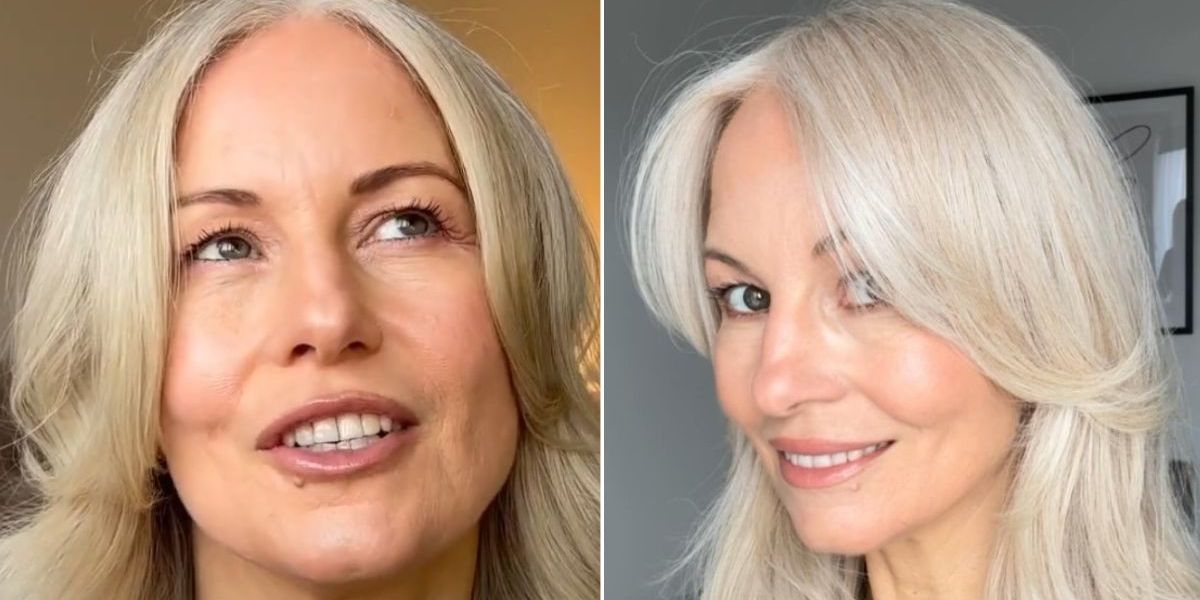As we age, hair texture changes due to a decline in hormones that control follicle production.
A drop in oestrogen shrinks follicles in certain women and result in thinner hair. Upping protein intake, however, may counter these changes.
To stop low oestrogen from interfering with hair growth, women are encouraged to pay close attention to their diet.
This proved helpful for Annamaria Kalebic, a 52-year-old influencer who has built a large social media following on the back of her lifestyle advice.
Annamaria says he hair looks as good as it did in her twenties
ANNA MARIA KALEBIC
“Upping my protein intake was phenomenal, and I’ll tell you why,” she said.
“Protein helps increase muscle mass and it helps with bone density, it helps with connective tissue, hair, skin, and nails. I haven’t had hair like this since I was in my 20s,” she declared.
WebMD claims food like red meat, spinach and leafy vegetables are great options for hair health.
“It can also be helpful to take a daily multivitamin to make up for the nutrients, you may not be getting in the foods you eat,” claims the health body.
Not only did Annamaria notice improvements in her hair, but she saw pleasant changes in her physique too.
“I started off my forties feeling really vibrant, but as I approached my mid-forties, I think the idea of turning 50 was looming over me,” she said.
In an attempt to slim down her waistline, Kalebic started restricting calories and ramping up her workout routine but soon discovered this approach was unsustainable.
“What I didn’t know at the time and have since learnt, is that strength training is so good for women,” she told her followers.
“It helps you build muscle mass and helps with bone density, but what I’ve found, is it helps you get stronger.
“It started lifting my self-confidence. I felt powerful, and in turn, that started to help with the way I was feeling about myself.
LATEST DEVELOPMENTS
High protein diets are hugely beneficial during menopause
GETTY
“When I turned 50 because I started weight training when I was in my late 40s, I was already starting to feel different and things were changing in a good way.”
Strength training during menopause is key to maintaining muscle mass.
Research shows that muscle protein synthesis, where the body rebuilds and repairs muscle tissue from amino acids, slows down as we age.
Addressing these factors could support healthy weight loss over time.

